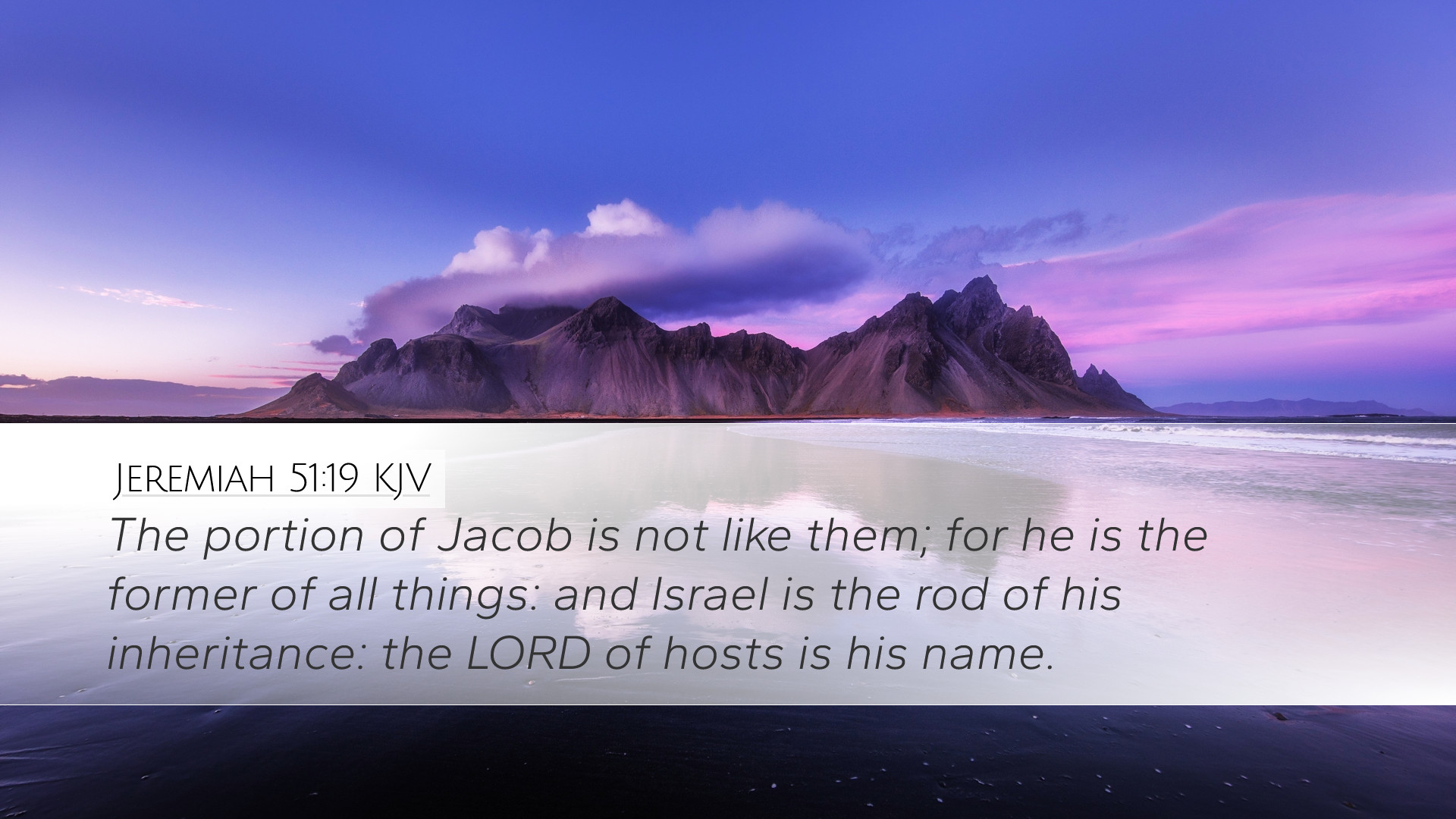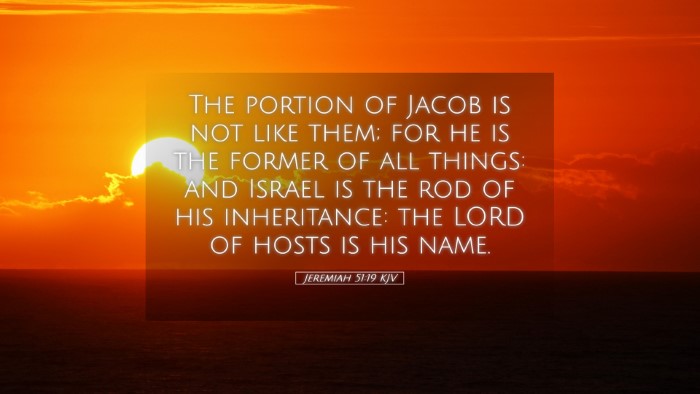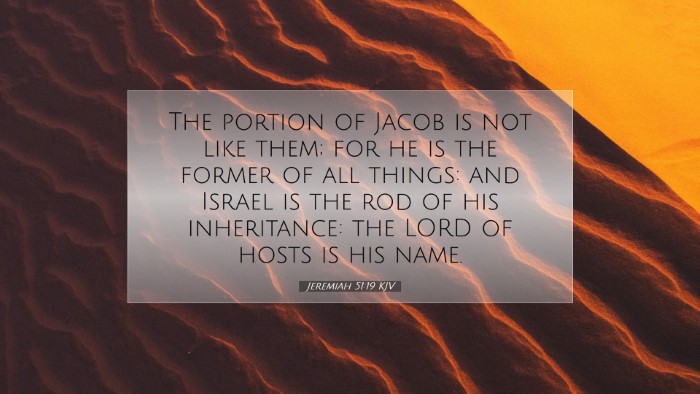Commentary on Jeremiah 51:19
Verse: "The portion of Jacob is not like them; for he is the former of all things: and Israel is the rod of his inheritance: The Lord of hosts is his name."
Introduction
This verse from Jeremiah encapsulates profound theological truths regarding the identity of God’s people and their unique relationship with God. Through the lens of public domain commentaries, we can glean insights that will inform and enrich our understanding as pastors, students, theologians, and scholars.
The Portion of Jacob
Mathew Henry's Insight: Matthew Henry emphasizes that the distinction of Jacob's portion, which represents Israel, highlights God's unique favor. Unlike the idols of the nations, God's people have a true and living God who created all things. Jacob’s portion is characterized by both inheritance and providence.
Albert Barnes' Reflection: Barnes discusses how Jacob's portion signifies more than mere land or heritage; it reflects spiritual richness and divine inheritance. The implications of being chosen as God's own people place Israel in a covenant relationship, emphasizing spiritual leadership rather than temporal authority.
The Former of All Things
Adam Clarke's Commentary: Clarke delves deeper into the phrase "former of all things," reminding readers of God's omnipotence in creation and providence. He asserts that God not only created all that exists but also stands sovereign over history, making Him unmatched compared to the idols of Babylon and other nations.
Spiritual Application: For believers today, recognizing God as the creator underscores the significance of worshiping the living God rather than conforming to the patterns of the world. Understanding God’s sovereignty reassures believers of His continuous involvement in human affairs.
The Rod of His Inheritance
Mathew Henry's Insight: Continuing in his interpretation, Henry suggests that the rod symbolizes authority and guidance. As God’s chosen people, Israel was not only to receive blessings but also bear the responsibility that comes with divine inheritance. This role includes the mandate to reflect God's nature to the surrounding nations.
Albert Barnes' Reflection: Barnes notes that the term 'rod' implies strength and discipline but also indicates a tool for growth and guidance. The Israelites were tasked with the continuation of God’s plan on earth, serving as a means through which God's ultimate purposes would be realized.
The Lord of Hosts
Adam Clarke's Commentary: Clarke concludes his analysis by reflecting on the title "Lord of Hosts." This designation expresses God’s might and authority over the celestial and earthly realms. It signifies that God is not only powerful in the heavenly places but actively governs the affairs of men.
Significance for Today: For modern believers, the title "Lord of Hosts" serves as a reminder of God’s comprehensive sovereignty. This title encourages confidence in God’s ability to handle the complexities and adversities of life, reinforcing the believer’s assurance that they are part of a divine inheritance.
Contrasting Idolatry with Divine Reality
General Observations: The verse contrasts the portion of Jacob with the lifeless idols of Babylon. While the nations worship their created gods, the Israelites are called to serve the Creator who is relational and active. This distinction serves as a caution for contemporary believers to avoid the allure of modern forms of idolatry, which may manifest through materialism, secularism, or personal ambition.
The Call to Reflection and Action
- Reflection: Believers are urged to reflect on their relationship with God and appreciate their identity as His chosen people. What does it mean for you to rely on the Lord of Hosts in times of uncertainty?
- Action: As God’s inheritance, there is a call to live in a manner that reflects His glory and truth to others. How can you demonstrate the uniqueness of your faith in a world filled with idolatry?
Conclusion
Jeremiah 51:19 invites us into a deeper understanding of God’s character, His relationship with His people, and their responsibilities as His chosen vessels. Through the combined insights of prominent commentators, it reminds us that our allegiance lies with the Creator, the rightful Lord of all, and the true source of our spiritual heritage. This verse calls for both commitment and reflection as we navigate our faith journey amidst a world often distracted by lesser gods.


